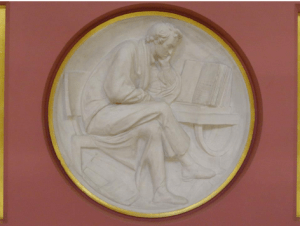
“Planet Transformers” by pavlinajane is licensed under CC BY-NC 2.0
Over the last few weeks we’ve been writing about UCL’s transformative agreements and introducing more researchers to them. These agreements give UCL corresponding authors a way to publish open access in subscription journals. They meet the requirements of the new Wellcome open access policy, which applies to research articles submitted from 1 January 2021, and we anticipate that they’ll also satisfy the new UK Research Councils/UKRI open access policy that’s due to be announced next year.
We’ve put together a list of journals in our transformative agreements (more than 5,000!) by subject. They include Modern Law Review, British Educational Research Journal, Annals of Neurology, Geo: Geography and Environment, and Human Brain Mapping (published by Wiley); Gender & Society (Sage); Attention, Perception, & Psychophysics, Climatic Change, and European Journal of Nutrition (Springer); Physics in Medicine and Biology (Institute of Physics); Journal of Materials Chemistry A, B and C (Royal Society of Chemistry); Art & Perception, and Journal of Ancient Near Eastern Religions (Brill).
If you aren’t very familiar with these agreements, read on to find out more about why they’ve developed and how they work. We’ve also explained a bit of confusing open access terminology – ‘hybrid’ journals – into the bargain.
If you know about transformative agreements already, feel free to go straight to the list: it’s below, and on our transformative agreements webpage. For more information about what’s in the list, scroll down to the “New tool – journals by subject” section below. Make sure that you check the relevant publisher terms and conditions on the transformative agreements webpage before submitting to one of these journals.
Journals in UCL’s open access transformative agreements by subject
Why transformative agreements?
Funders increasingly want to ensure immediate open access to journal articles. Delayed open access after the publisher’s embargo period (usually between 6 and 24 months) isn’t enough; and paying for open access in subscription journals, without the journal committing to becoming fully open access, isn’t going to be acceptable either.
We anticipate researchers that researchers will have to publish in:
- fully open access journals (listed in the Directory of Open Access Journals) – e.g. the PLOS and BioMed Central journals, Nature Communications and Scientific Reports (Gold open access);
- subscription journals that allow the accepted manuscript to be made open access in a repository (Green open access), with the CC BY licence, on publication (e.g. Royal Society and Emerald journals); or
- subscription journals that are part of transformative agreements (or that have “transformative status”) – also Gold open access – for as long as this third option is permitted.
To offer a publishing option that meets these requirements, a journal can become fully open access (option 1), remove its embargo on Green open access and allow CC BY (option 2), or offer a transformative agreement (option 3).
Subscription and hybrid journals
Most journals require a subscription – either institutional or personal – for access. Journals that are accessible through UCL’s subscriptions appear in the E-journals link on our E-resources webpages. Some subscription journals (e.g. the Nature journals, and Science) have a Green open access option, but don’t offer Gold (paid) open access. If you upload the accepted manuscript of a Nature journal to UCL’s Research Publications Service, we’ll make it open access in UCL’s open access repository, UCL Discovery, at the end of the embargo period: six months, for those journals. You can use Sherpa Romeo to check journals’ embargo periods.
Many subscription journals offer an open access option to make specific papers openly available. They’re known as hybrid journals. These journals are in a position to offer transformative agreements that meet the requirements of option 3 above, provided they are serious about transitioning to becoming fully open access. Most journals are hybrid journals.
We’ve already mentioned some high-profile journals that are in our transformative agreements. Most are hybrid journals: Modern Law Review, British Educational Research Journal and Annals of Neurology (published by Wiley); Gender & Society (Sage); Attention, Perception, & Psychophysics, Climatic Change and European Journal of Nutrition (Springer); Physics in Medicine and Biology (Institute of Physics); Journal of Materials Chemistry A, B and C (Royal Society of Chemistry); Art & Perception, and Journal of Ancient Near Eastern Religions (Brill). There are also some fully open access journals in our Wiley agreement: examples are Geo: Geography and Environment, and Human Brain Mapping.
Negotiating transformative agreements
These new agreements replace UCL’s subscription agreements with publishers. An additional sum is paid for the (open access) publishing element, funded by UCL’s UKRI, Wellcome and institutional open access budgets. Over the course of the agreement (sometimes several years), an increasing proportion of the cost is directed towards publishing instead of access (subscriptions).
Jisc Collections negotiates transformative agreements on behalf of all UK institutions. These agreements are transitional: Plan S (to which UKRI and the Wellcome are signatories) and the new Wellcome policy allow costs of transformative agreements to be funded until the end of 2024. Like other universities, we’re monitoring the overall costs of these agreements, takeup, and researchers’ views of them, very closely.
We currently have agreements with Brill, Electrochemical Society, European Respiratory Journal, IMechE, Institute of Physics, IWA Publishing, Microbiology Society, Portland Press (Biochemical Society), Rockefeller University Press, Royal Society of Chemistry, Royal Society of Medicine, Sage, Springer, Thieme and Wiley. Jisc is actively negotiating with other publishers, including Oxford University Press, Cambridge University Press and many others. Agreements are for calendar years. What’s really critical is that agreements should cover 100% of outputs by UCL corresponding authors, and be affordable.
New tool – journals by subject
We’ve had lots of positive reaction to these transformative agreements, as well as questions about journals that aren’t currently covered (see the section above). One of the things we’ve been asked to do is to provide information about which subjects each journal covers.
We’ve used Scopus and Web of Science to put together a list of journals in the current agreements with different subject granularity. The list below shows broad Scopus categories, narrower Web of Science and Scopus ones, and lastly very specific Scopus categories. In the same file, we’ve included a separate list of the detailed Scopus categories, which might help with interpreting the main list.
Journals in UCL’s open access transformative agreements by subject
We know that only researchers can decide where best to submit their work; but we hope that by providing this information we can help more researchers to publish open access. Make sure that you check the relevant publisher terms and conditions on our transformative agreements page before submitting to these journals.
More information
If you’d like to receive updates on open access and transformative agreements, please use the Subscribe by Email option to sign up for an alert when we publish a new post. You’ll find it to the right of this post, or at the bottom if you’re reading this on a mobile device. Alternatively, or as well, follow us on Twitter!
If you’d like to arrange a department briefing on anything covered in this post, or on open access more generally, contact catherine.sharp@ucl.ac.uk
Filed under APCs, COAF, Funding, Gold, Plan S, RCUK, Transformative ageeements, Wellcome Trust
Tags: APCs, transformative agreements, UKRI, Wellcome Trust
No Comments »
 Close
Close








